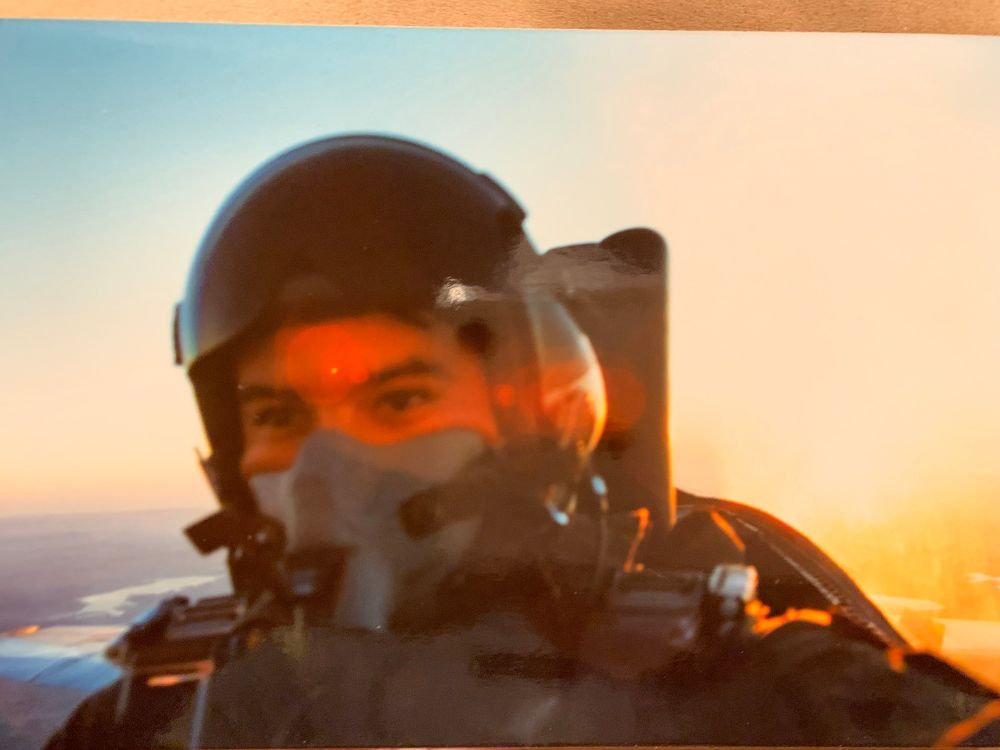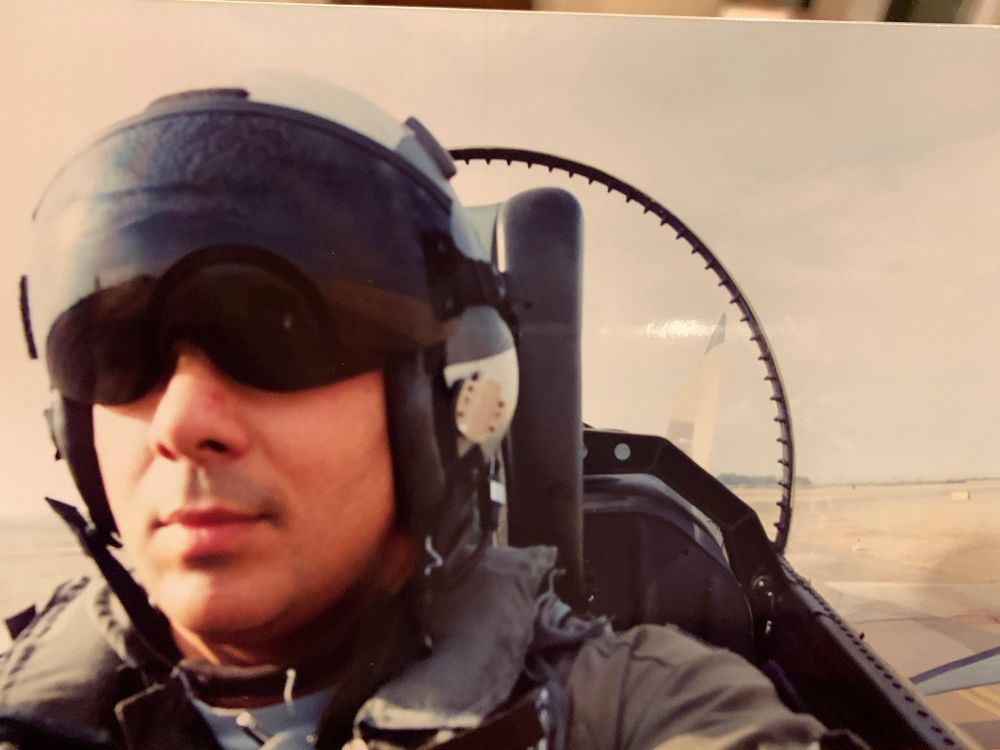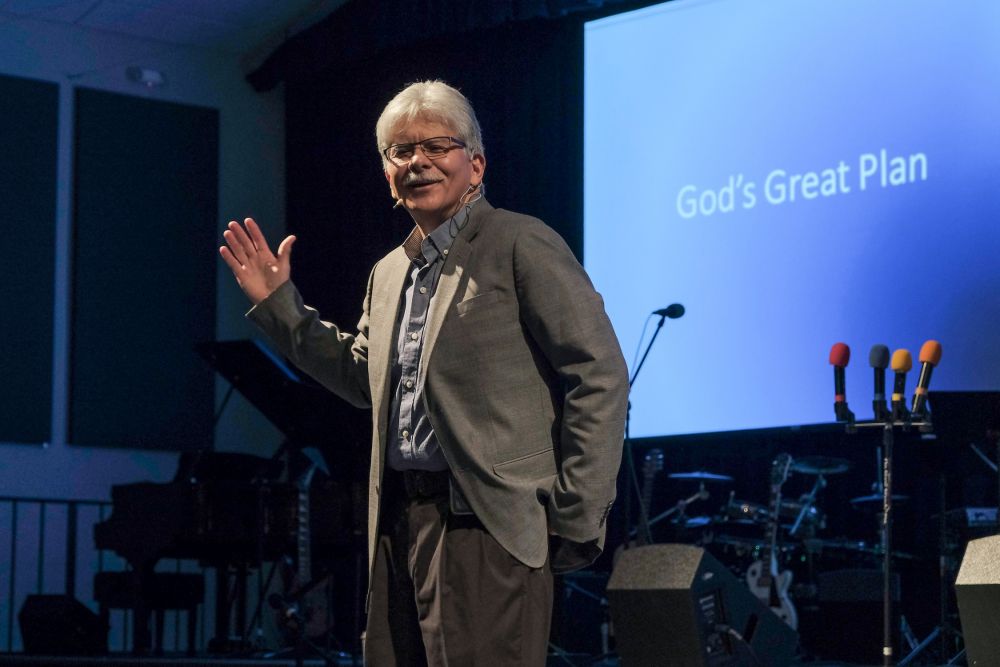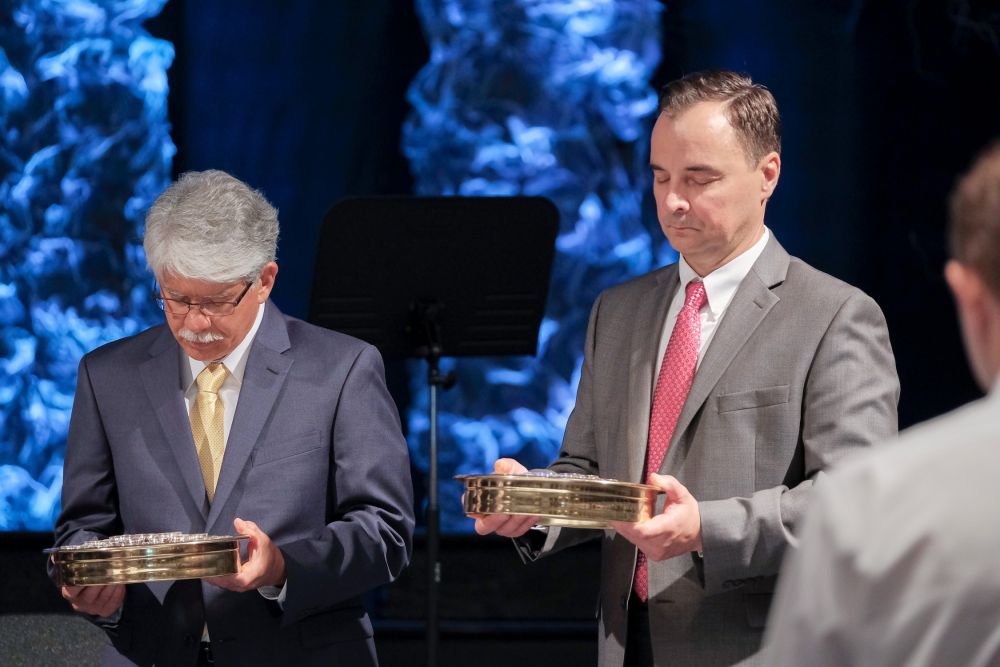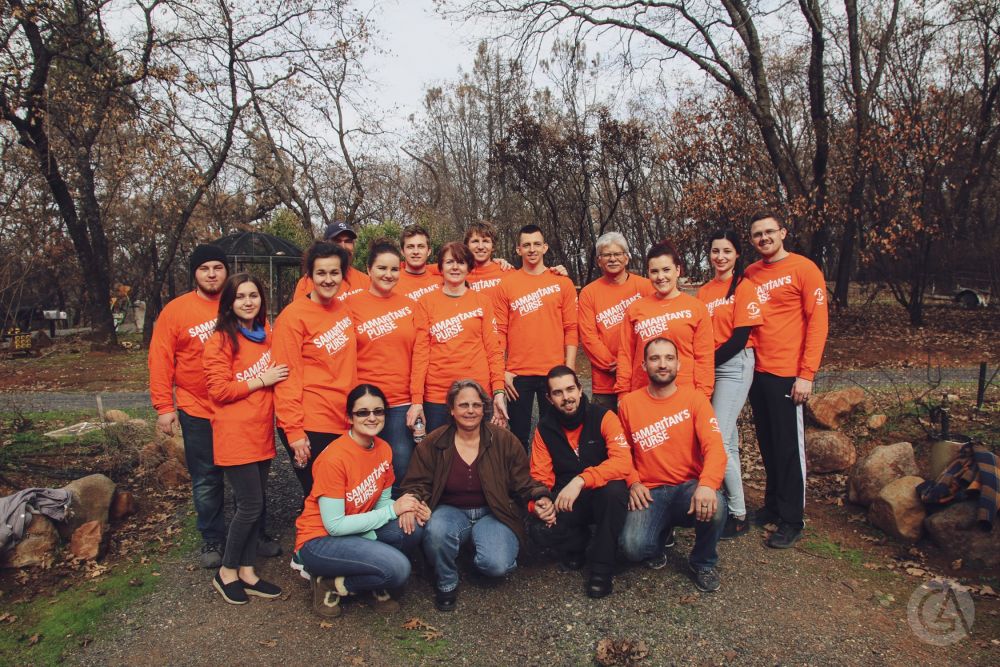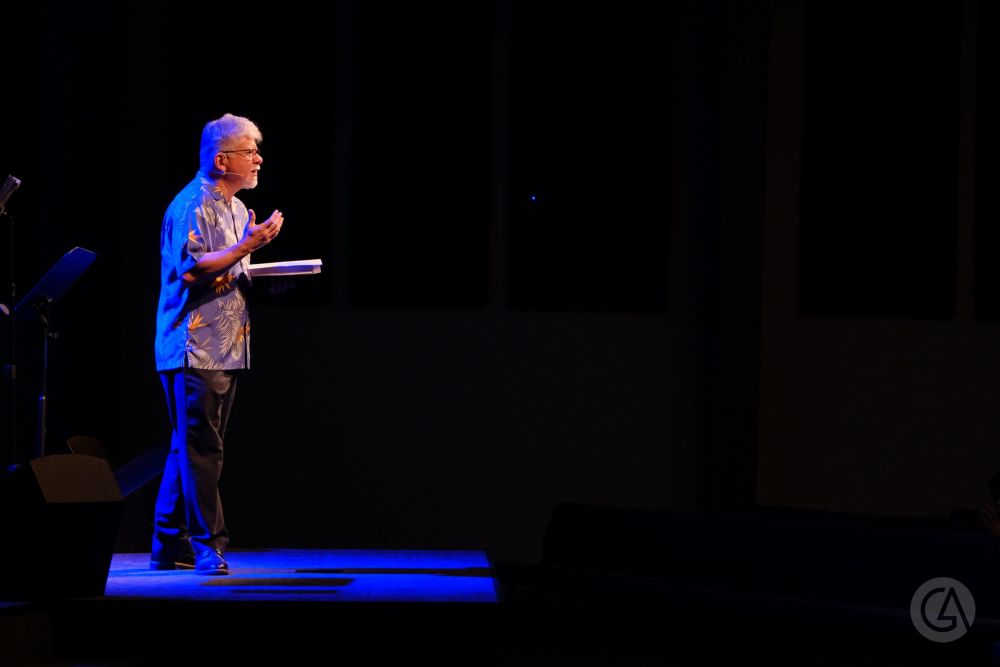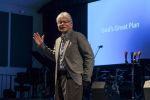Gary Ball is a teacher, mentor, and has done missionary work in India. Gary with his wife Jan, a certified family counselor, have served as an excellent example of self-sacrifice and love for the Lord at Grace Avenue Bible Church for five years. They are now moving to Idaho, where the Lord will use them in new serving capacities. In his interview with David Karkhut, one of the leaders at Grace Avenue Bible Church, Gary Ball shares his personal testimony on his journey of faith, his understanding of the mission field, and about the importance of mentoring and training up young preachers who would continue his vacancy.
David Karkhut: - You became a believer later on in your life. Please share your testimony.
Gary Ball: - I remember wondering who God is from a young age. I grew up in a mixed race, multi-culture family with parents who believed in different gods. I would describe my father as being agnostic, while my mother was raised a Buddhist. Consequently, I was taught very little about religion by my parents.
When I was about 8 years old, my father decided that I should go to Sunday School, which was a very uncomfortable experience as I didn’t know any of the other children, or the teacher. The teacher wasn’t exactly welcoming, so I would just sit by myself and listen. A question came up in class about Catholics, and the teacher answered to the effect that there are “good” Christians and “bad” Christians and she assured the class that “we” were the “good” Christians. But I was left wondering, if these people who seemed to be judgmental and unwelcoming were the “good” Christians, what were the “bad” ones like? In fact, how did these people know that they were the “good” Christians? I didn’t see a whole lot of goodness in their words or actions. Needless to say, I wasn’t inclined to continue going to Sunday School.
Around the same time, we lived with my maternal grandmother for a while. She was a lay leader in her Buddhist temple and she would hold prayer gatherings in her home. I viewed these events with fascination, as they would sit in a circle, and chant some sort of “prayers” which sounded like certain phrases repeated over and over—I couldn’t understand Japanese, so I couldn’t be sure. I bring all of this up to tell you that my grandmother, who definitely was not a Christian and was nearly blind, and was very poor, was welcoming, warm, and that she would literally walk miles to give food or clothing that she scarcely had to those in need. That was a powerful witness. Yet at the same time, her religion struck me as somehow strange, with the burning of incense, chanting and carved idols on the family home shrine.
I came to the conclusion that all people must view God in very different ways, and when I compared the words and actions of many people who claimed to be Christian, with those of my maternal grandmother, I decided that the Christian God was probably not a very good god. I know, it was a childish conclusion based upon a small sampling, but it influenced my thinking for many years—especially as I studied world history in college and learned of how the church often became an integral part of the ruling class of governments, often reaping large amounts of monies and riches from rulers for keeping
their flocks under control. I concluded that Christianity was merely a way of controlling large groups of people and that it likely had little to do with God.
Because of these early beliefs, as I continued my search to know God as an adult, I would usually disregard any evidence that the Christian God is the real God. This, in spite of the fact that I married a woman who was raised Christian, believed in Jesus and attended church. I respected that she had her faith, but unfortunately, when I questioned her about her faith, she was not equipped to tell me why she believed in her God. She simply had faith. I am not at all criticizing my wife, her words and actions were always a wonderful witness for Jesus, but she couldn’t answer the questions I asked and neither could any of my other Christian friends. They all simply had faith. Not a good answer for someone who has a very analytical mind.
I spent years reading about different religions, primarily Buddhism and some New Age types of beliefs, and all of these books convinced me that God was essentially unknowable, that he had created the earth and mankind and then set the whole experiment free in the universe, and then he went off to do something else. For all intents I became a Deist, but this was a very unsatisfying belief.
D.K.: - Did God’s amazing grace continue to pursue you?
G. B.: - Yes. As I entered my forties, I felt the God whom I did not know, renew his pursuit of me. I was an airline pilot, and God began to put very godly men in my cockpit with me, men who were good witnesses for their God. Unfortunately, because I was predisposed from my early experiences to ignore Christianity, I often ignored their words, but their actions spoke loudly. Unfortunately, most didn’t have answers for the questions I had, but one day I was flying with a Christian who had been given a book written by a friend who was a former pilot, but gave up flying to attend seminary. He gave me a copy of this book which was entitled “I Don’t Have Enough Faith to be An Atheist,” written by Norm Geisler and Frank Turek, who was my co-pilot’s friend.
I fully intended to read this book, but it just sat on my night stand until I had an accident and ended up bed-ridden for a few days. In my boredom I dusted off the book and began to read. I was fascinated. Here were Christians who had tackled many of the questions I has asked of my Christian friends. As I read the book it dawned on me that there was a possibility that there was something to this Christianity. I took note of the other books and authors referenced in that book, and I ordered them and devoured them. Books on Christian apologetics written by William Craig, J.P. Moreland, C.S. Lewis and Lee Strobel. At the same time, I was listening to the Bible during my 2 ½ hour drive to work, which as we know—especially much of the Old Testament—can sound very strange when you don’t have the Holy Spirit in your life. Nevertheless, I began to find the Bible compelling and the combination of hearing God’s word, along with the reasoned explanations for the Christian faith by the apologists, led me to conclude that the Christian God is the one true God. So, I found myself alone with Jesus in a hotel room in Burbank, CA. and I prayed that if Jesus is the Christ, if he is the one true God, that he would prove that to me as I pledged to honor him as God. And he has in more wonderful ways than I could ever imagine.
D.K.: - What are some changes that took place after you came to Christ?
G. B.: - In addition to having a ravenous appetite to learn all I could about Jesus, I became much more focused on serving and I was determined to be able to give an answer to those who questioned why I had come to faith in Christ. I also became passionate about equipping others to be able to explain their faith to others.
D.K.: - Career-wise, you were a Fighter Pilot. Prior to becoming a believer, did you ever pray during times of fear during your flights? Did you ever experience moments of fear during your flights?
G. B.: - Good question. In order to be a good fighter pilot, you have to be able to compartmentalize your thoughts, your thinking has to be very disciplined and focused on the task at hand. So yes, I did experience some very stressful, even dangerous situations during flight, but my complete focus was always to handle whatever tasks that needed to be done in order to safely return to base. There was no room for fear in the cockpit. Afterwards, after debriefing, this is when you would begin to understand the gravity of the level of danger you had faced, and perhaps a level of uneasiness would enter my mind. So I don’t ever remember praying in the cockpit, but it is interesting that many nights—and this was before I became a Christian—I would say the Lord’s Prayer before going to sleep.
D.K.: - You have a Master’s Degree in Apologetics. What made you decide to go to seminary? And is it important to be educated in order defend your faith?
G. B.: Apologetics has a very special place in my heart since it was the writings of many great apologists that led me to faith in Christ. Once I came to faith I felt compelled, I was called to continue learning all I could so that I could help others, who have no desire to study apologetics, to be able to give reasoned answers to those who ask why they believe in Jesus. Not long after I was saved my church held an apologetics conference taught by J.P. Moreland, Craig Hazen and others. I wasn’t able to attend since I was flying a trip (I was a commercial airline pilot after the Navy), but my wife attended and got the CD recordings from the conference for me. As I listened to the conference I discovered that many of them were professors at BIOLA University, and that they had a Master of Arts in Apologetics program. When I heard that, I just knew that I had to enroll in the program. Not everyone has to have a Masters in Apologetics, but I do agree with the Apostle Peter that we should “Always be ready to give a defense to anyone who asks you for a reason for the hope that is in you.”
D.K.: - Being a true believer in this world has always been a risky calling. You, being a Fighter Pilot also involved risk. Would you say that the discipline you received while serving has helped you in your Christian living?
G. B.: - Another good question. Yes, undoubtedly the discipline I needed to develop as a pilot, the long hours of study, overcoming doubts and facing hardships were all invaluable training for becoming a disciple of Christ. Perhaps one of the lasting legacies from that experience was that I had to face my mortality at a relatively young age and I also had to answer a question. What was the question? Am I willing to give my life in order to serve and protect my country? A modified version of this question is one all Christians should ask themselves: Am I willing to give my life in order to serve and glorify the Lord Jesus Christ? Or, I just usually ask the question Dallas Willard used to ask his students: Who or what are you willing to die for? I think your answer will tell you a lot about the depth of your faith.
D.K.: - How did you hear of our church? What prompted you to become a pastor within the Slavic community?
G. B.: - My wife and I were returning from a trip to Idaho, we had been visiting old friends and looking for ministry opportunities when I received a call from my Pastor about a Slavic church in Sacramento in need of a guest speaker. I received a contact number and I reached out to find out what was needed. I discovered that not only did they need a guest speaker, they needed someone to come and teach in English on a regular basis. I met with the Elders, and we decided to give it a trial. My wife and I were warmly welcomed by the congregation, and we felt that God was calling us to Grace Avenue to serve his people. We were 800 miles away looking to serve, and God opened the door right in our own area!
D.K.: - Our local church fell in love with your family. These five years of your ministry was a great blessing for us… For pilots, teamwork and order is very important. How crucial is it within the church?
G. B.: - Thank you. Jan and I will miss you. We will remember your church in our prayers and will visit you whenever possible… The beauty of the crew concept—teamwork as you put it—is that everyone is focused on a common goal; the safe completion of a mission or flight. The pilots don’t even have to be in the same cockpit—I flew single pilot fighters—but all of the aircraft in the flight are coordinated, each pilot has his duties and responsibilities for the successful completion of the mission, and if one of the pilots fail, the whole flight fails. Pilots, in many ways, are just like the people in a church. They come from different places, different cultures, different schools. The truth is, you may not even like the person(s) you are flying with. But once you enter the cockpit, all those differences fade into the background and you all focus on a common goal.
I think this model would be wonderful for the church to emulate. We are all gifted by God in different ways to perform different ministries. We are all part of the body of Christ and as Paul said, “God has placed each one of the parts in one body just as He wanted. And if they were all the same part, where would the body be?” Part of our fallenness, and I don’t think there is necessarily any animosity in this, but our tendency is to think that what God has called us to do is the most important ministry in the church! So, we tend to think worship should be priority, or children’s ministry, or ushering, or whatever, should be most important, forgetting that we are all trying—or we should be trying—to accomplish the same goal: to bring glory to Christ and to share his Good News with all mankind.
We can and should maintain our diversity, we can remain unique individuals created in God’s image and still work together towards a common goal.
D.K.: - For many in youth, the India Mission Trip became an unforgettable experience (thanks to your organization). Three years have passed, yet some who participated continue to support orphans in India whom they personally met. How important are missions for the church?
G. B.: - I am a firm believer in the importance of mission’s work, I think it is an essential part of our faith. As a church it allows us to take our eyes off of ourselves, and to focus on the trials and tribulations our brothers and sisters around the world are facing. Being focused on the needs of others often helps to put our own lives in perspective.
I also believe that sending our youth into the mission field is invaluable. Especially since we live in the richest, most blessed country in the world. When our teens are exposed to the reality that so many in the world do not have basic shelter, do not have food, do not have parents or family to support them, I think God does a work in their souls. I think that mission’s work blesses the missionary more than the people they go to serve as it allows them to realize just how much God has blessed them. When we see people with so little in this world and yet we see the joy they have because they know Jesus, it causes us to take a good, hard look at our hearts and out priorities. It makes us genuinely grateful for all God has done for us.
D.K.: - What was your motivation (vision) when you began to mentor and train up some young preachers who would then take up your position?
G. B.: - One of the lessons I learned early on in my life is that no man is irreplaceable in an organization. Fighter squadrons, by necessity, have to be able to continue to function even though they may have suffered the loss of a pilot. The squadron mourns for a short time, and then the work continues.
I have seen too many churches face terrible crisis because they were too dependent upon a person, whether a lead pastor, a worship leader, whoever, because those leaders failed to train up successors. As a man I do not know the number of my days, only the Lord does. This means that as a leader, I may be called home to Jesus, or to another ministry at any time. I believe it would be irresponsible to not realize that truth and to ignore the possibility that I may need to be replaced. I feel it is essential for any church leader to always be looking for the people God has gifted to be able to assume your role in the church and to equip them to do the work of ministry. I believe that so many crises many churches face is because their leaders assumed that they would always continue in their positions and therefore fail to train their replacements.
D.K.: - Thank you Gary for your ministry. May God bless you in the ministries He calls you to.












